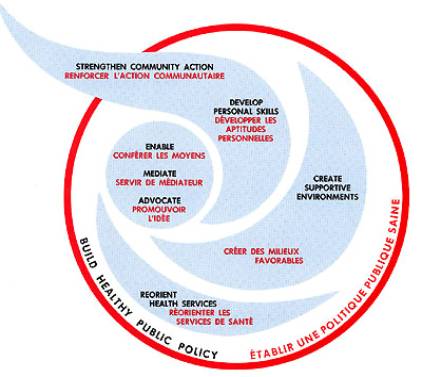|
EWHNET The partners of EWHNET The activities: 1st transnational meeting, Hannover 2000, January 21st-23rd
2st transnational meeting, Naples 2001, March 25-26
The manifesto: Women's Mental Health Promotion
International meeting, Berlin, 8-9 June 2001 : the proposal for a new European women mental health network
7 April 2001
|
EWHNET
EWHNET The
European Women’s Health Network is a project in the Medium-Term Community
Action Programme on Equal Opportunities for Women and Men (1996 –2001) and is
financially supported by the German Federal Ministry for Family Affairs,
Seniors, Women and Youth (BMFSFJ). Duration
of the Project: June, 1997 – September, 2001. Why a European network for Women´s health? Women live longer than men. But women differ from men in regard to their health
status, i.e. in the Ø
incidence
and prevalance of health problems Ø
types
of health problems Ø
communication
about health and ill-health Ø
health
experience Ø
the
consequences of health problems Ø
treatments
received These differences are not considered adequately in
the health system. The health needs of women are not addressed
adequately. ...and
why European-wide? Ø
A
dialogue across borders offers an insight into the diversity of approaches,
fosters mutual understanding as well as cooperation and represents an enrichment
for one’s own work.
Ø
Women’s
health is affected by European policies as well as by local or national policies
and circumstances. The
theoretical framework of EWHNET... ...is
a social model of health that includes socio-economic circumstances,
life-styles, and living conditions. Ø
Women’s
health is usually discussed from a bio-medical point of view ignoring social
factors such as socio-economic inequality, multiple roles (motherhood,
housework, employment) and lack of social recognition. Ø
Gender
differences are either ignored (gender blindness) or exaggerated (gender
stereotyping). Ø
Consequences
are medicalisation of normal life-phases, psychologisation, and marginalisation
of women’s (health) problems in health care, health research, and health
policies. Ø
These
consequences mostly lead to dependence of women on professionals of the health
system What does health promotion mean on this background? empower women to make personal decisions on
health issues based on informed consent strengthen
community action promote
networks of women
build healthy public policy bring gender specific approaches in
the focus of policy-makers
reorient
health services integrate
gender specific approaches
towards
health in research, plannig, health promotion and care
create
supportive environments support
women’s professionals and self-help organisations in the What are the
aims of EWHNET? Ø
to
make visible the special needs of women in health system and health care Ø
to
identify and promote women oriented strategies and models of good practice European-wideØ
to
interconnect various projects and key persons
in the field of women’s health Ø
to
establish a common platform for a mutual
understanding Ø
to
develop common strategies for a better consideration
of women-oriented practical
methods in the field of health Step
for realisation Ø
political
strategies to achieve equity for women Ø
transnational
guidelines for different fields Ø
theme-oriented workshops focusing e.g. on women, work
and health; health promotion for girls at school; women-friendly psychotherapy. Ø
disseminating
of information Ø
country
reports with address-lists of relevant organisations Ø
transnational
meetings Ø
networking
|

